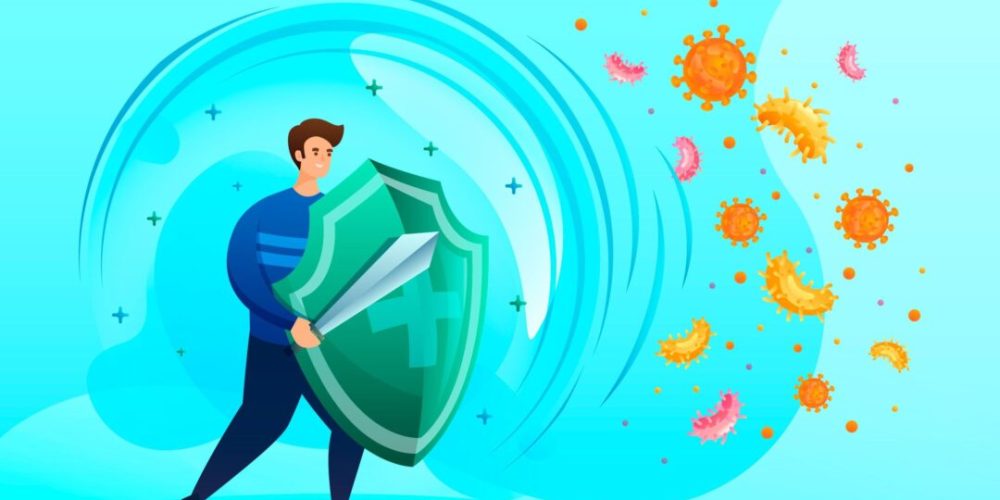Immune System: Your Body's Powerful Defense Mechanism

Introduction
The immune system is an extraordinary network of cells, tissues, and organs that work together to protect our bodies from harmful invaders. It acts as a powerful defense mechanism, safeguarding us against infections, bacteria, viruses, and other foreign substances. In this article, we will delve into the fascinating world of the immune system, exploring its different components and how it functions to maintain our overall health and well-being.
Understanding the Immune System
1. The Basics of Immunity
Before we dive into the intricate workings of the immune system, it’s essential to understand the basics of immunity. Immunity is the ability of the body to resist harmful pathogens and prevent them from causing disease. It can be categorized into two types: innate immunity and adaptive immunity.
2. Innate Immunity
Innate immunity is the first line of defense that our body possesses since birth. It acts as a rapid response system, providing immediate protection against infections. This type of immunity includes physical barriers like the skin, as well as white blood cells that engulf and destroy foreign invaders.
3. Adaptive Immunity
Adaptive immunity, also known as acquired immunity, develops over time as we encounter various pathogens. It involves the activation of specific immune cells and the production of antibodies that target and neutralize particular threats. Adaptive immunity also ensures that our body “remembers” the pathogens it has encountered, providing long-lasting protection.
4. Immune Cells
Several types of immune cells play crucial roles in protecting our body. These include:
White Blood Cells: White blood cells, or leukocytes, are the primary warriors of the immune system. They identify and eliminate harmful substances, such as bacteria, viruses, and infected cells.
T cells: T cells are a type of lymphocyte that plays a key role in cell-mediated immunity. They are responsible for destroying cells infected by viruses or other pathogens.
B cells: B cells are another type of lymphocyte that produces antibodies to neutralize pathogens. They are essential for the functioning of the adaptive immune system.
Natural Killer (NK) cells: NK cells are a specialized group of white blood cells that can directly destroy infected or cancerous cells.
5. Organs of the Immune System
The immune system is distributed throughout the body, with specific organs playing vital roles in its functioning:
Thymus: The thymus is the site where T cells mature and become fully functional.
Bone Marrow: The bone marrow is responsible for producing various blood cells, including immune cells.
Spleen: The spleen acts as a filter for the blood, removing old or damaged blood cells and capturing pathogens.
Lymph Nodes: Lymph nodes are small, bean-shaped structures that filter lymph fluid, trapping and destroying harmful substances.
How the Immune System Works
6. Recognition and Detection
The first step in the immune response is the recognition and detection of foreign invaders. When pathogens enter our body, they carry unique molecules called antigens. Immune cells recognize these antigens and initiate the immune response.
7. Activation of Immune Cells
Upon detecting antigens, immune cells become activated and start multiplying rapidly. This ensures a robust response to the invading pathogens.
8. Antibody Production
During adaptive immunity, B cells produce antibodies that specifically target the antigens. These antibodies mark the pathogens for destruction by other immune cells.
9. Cell-Mediated Response
T cells play a critical role in cell-mediated immunity. They directly attack infected cells and destroy them, preventing the spread of pathogens.
10. Memory Cells
After the immune response has successfully neutralized a pathogen, memory cells are created. These cells “remember” the specific antigen and mount a faster and more efficient response if the same pathogen invades in the future.
Factors Affecting the Immune System
11. Lifestyle and Diet
The immune system’s health can be influenced by our lifestyle and dietary choices. A balanced diet rich in vitamins and minerals, along with regular exercise, can bolster immunity.
12. Stress and Sleep
Chronic stress and inadequate sleep can weaken the immune system, making the body more susceptible to infections.
13. Age and Immunity
As we age, the immune system tends to weaken, making older individuals more vulnerable to illnesses.
Conclusion
The immune system is a remarkable and intricate defense mechanism that protects our bodies from harm. Its ability to recognize, remember, and respond to various pathogens is a testament to the brilliance of nature. Taking care of our immune system through a healthy lifestyle and being mindful of its functioning can significantly impact our overall well-being.
FAQs
1. What is the primary function of the immune system?
The primary function of the immune system is to protect the body from infections and other harmful invaders.
2. Can lifestyle choices affect immunity?
Yes, lifestyle choices, such as diet and exercise, can significantly influence the immune system’s health.
3. Are all immune responses the same?
No, the immune system has both innate and adaptive responses, each with its specific mechanisms.
4. How can stress impact immunity?
Chronic stress can suppress the immune system, making it less effective in fighting off infections.
5.What are memory cells, and why are they essential?
Memory cells “remember” previously encountered pathogens, allowing for a faster and stronger response upon re-exposure.